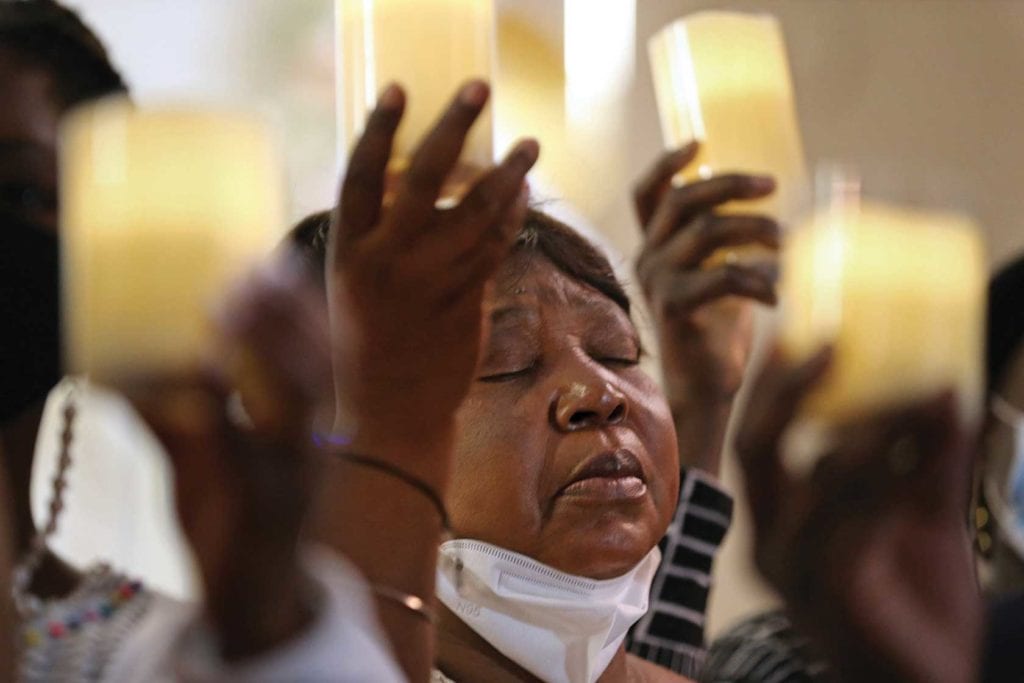Boston rallies in support of Haiti
Mayor attends vigil at Mattapan church

Chants of “lapè pou Ayiti” (peace for Haiti) filled Our Lady of Mount Carmel during a solidarity vigil at the former St. Angela Merici Parish in Mattapan Sunday. About 50 people, including public officials, faith leaders, and residents of the Haitian diaspora, came together in prayerful support for the people of Haiti following the assassination of the country’s president Jovenel Moïse and the shooting of his wife Martine on July 7.
People held hands over their hearts during the Haitian national anthem and many later teared up while holding candles and singing around the church’s altar during the event hosted by Haitian Americans United Inc.

Ruthzee Louijeune, center, who is running for an at-large Boston City Council seat, holds up a candle during the Peace for Haiti Solidarity Vigil on Sunday. PHOTO: ANGELA ROWLINGS
“We are sending a message of hope to the people of Haiti,” said Geralde Gabeau of the Immigrant Family Services Institute (IFSI).
Acting Mayor Kim Janey noted the resilience of the Haitian community and said the city stands with Haiti and Boston’s Haitian residents.
“We all stand united with the Haitian community in standing and calling for peace,” said Janey. “If there is anything that I can do as mayor, my door is open, my arms are open, and we all stand united.”
Boston City Councilor Andrea Campbell and former Boston economic development chief John Barros, who are also running for mayor, were among several local politicians and candidates attending the vigil.
Ruthzee Louijeune, a daughter of Haitian immigrants who is running for an at-large seat on the Boston City Council, said it is important to support Haiti, which has suffered both natural and manmade disasters, with language that uplifts the Haitian community rather than language that doesn’t do the country or its people justice.
“We’re all just praying for peace,” said Louijeune. “That is the most important thing, that we pray for peace, that we support a government in Haiti that can bring peace, stability and security to its people, that there’s a thorough investigation to find out what happened to Jovenel Moïse.”
“Haiti has given so much to the world, when you talk about Black liberation, when you talk about liberation in general,” she said. “We owe it to the country to see how best we can show up in support and believe and have hope that change and progress and stability is possible.”






